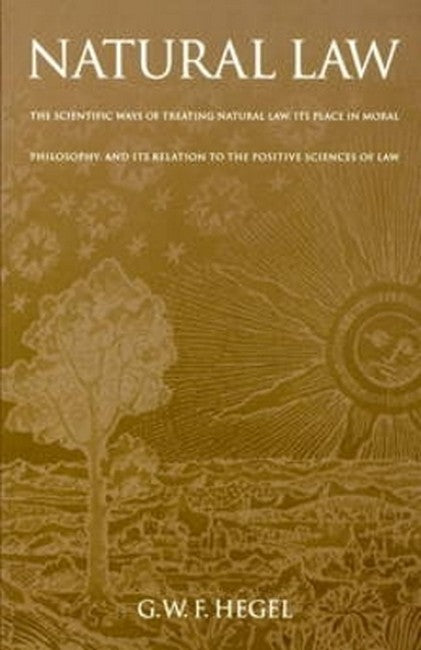Georg Wilhelm Friedrich Hegel (1770-1831) was perhaps the most systematic of the post-Kantian idealist German philosophers. T. M. Knox translated many of Hegel's works into English. Harry Burrows Acton (1908-1974) was a British academic philosopher known for defending the morality of capitalism. John R. Silber was president of Boston University from 1971 until 1996.
Request Academic Copy
Please copy the ISBN for submitting review copy form
Description
"The publication of . . . this book is an intellectual event."-Alasdair MacIntyre "An invaluable translation . . . of a document in his fruitful Jena period which is crucial to our understanding of Hegel's maturity. This essay on natural law throws much light on the Phenomenology soon to appear as well as the later Philosophy of Right. It amounts to a philosophical declaration of independence for Hegel: his departure from the theological preoccupations of his youth on the one and the tutelage of Kant and Fichte on the other. The Phenomenology of Spirit will announce his independence from Schelling, too, and philosophy will henceforth play for him the role formerly held by religion in the life and destiny of a people."-J. Glenn Gray "It is an immense advantage to students of political philosophy in general, and to Hegel scholars in particular, to have Hegel's early essay on the scientific treatment of natural law available in English. . . . Acton's introduction supplies useful historical background and will assist those unacquainted with Hegel . . . to sort out the main argument."-Errol E. Harris "With the appearance of this book the English-speaking world will learn something at first hand of the genesis of Hegel's ideas, the dominant intellectual themes of his youth, and the struggle of his penetrating, comprehensive mind to achieve clarity."-The Philosophical Review

